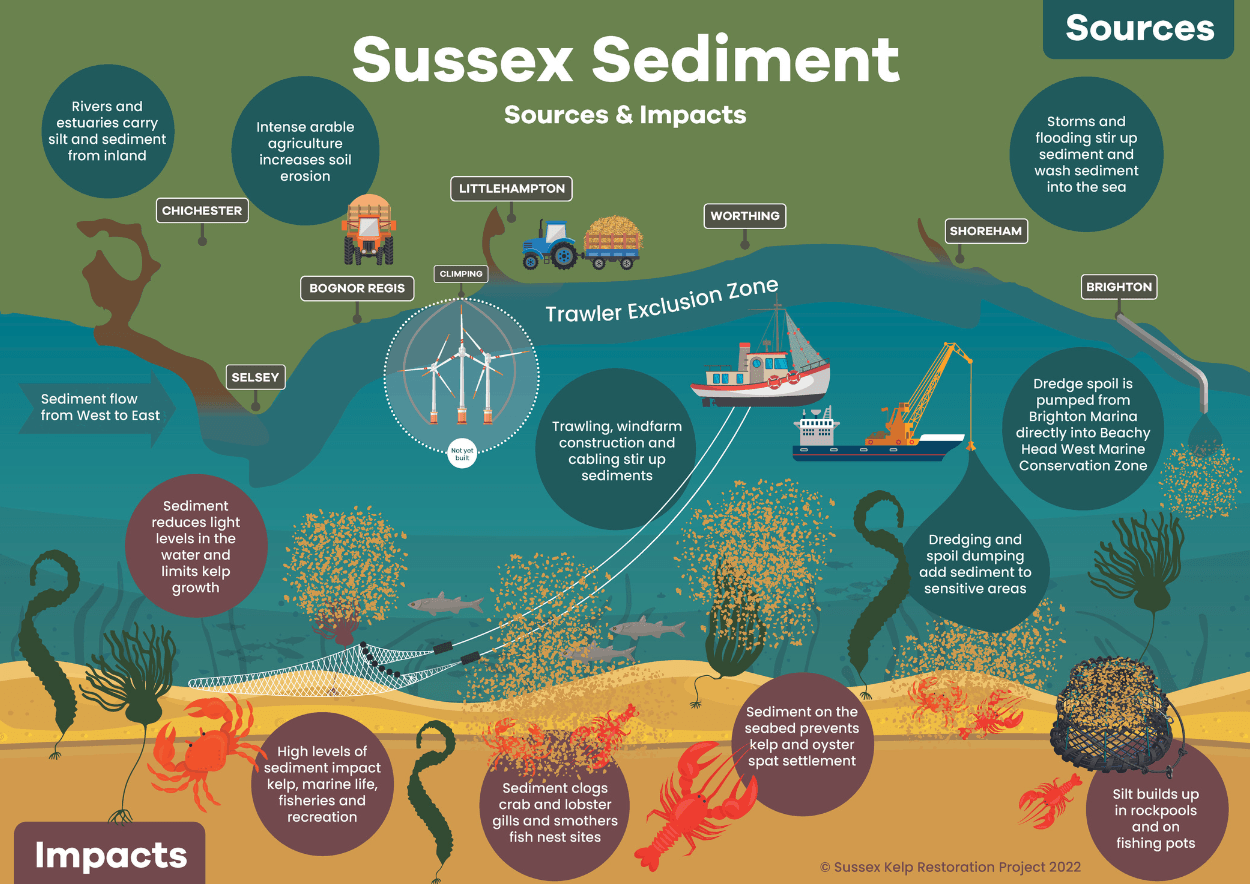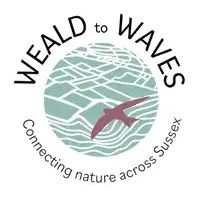From land to sea: sediment in Sussex
By Alex Briggs - 14 July 2023
If you take a look at the Weald to Waves map, you might notice that the corridor runs all the way to the sea … and then carries on! The route runs through the Sussex Kelp Recovery Project. If you don’t already know about this fantastic effort to restore Sussex’s historic kelp forest, there’s a dedicated article in the blog.
When we think about our coastal ecosystems, it is tempting to divide them into marine and terrestrial, as they are in many ways so vastly different. However, the interface between land and sea is particularly important for marine conservation, going back to the idea of connectivity being central to all of our efforts. For example, pollution flowing from the land into the sea in various forms, from chemical and plastic, to sediment. While it may not be the first thing that springs to mind when we talk about pollution, sediment is a real problem for our marine habitats.
Where does it come from?
Sediment run-off is particularly exacerbated by human-dominated landscapes such as intensive agricultural systems. While tree cover along riverbanks and woodland in the wider landscape reduce sediment erosion and run-off, the degradation of our ecosystems has severely reduced this service leading to large amounts of sediment being washed into our freshwater systems, which flows into the sea. In addition, storms (likely to increase in severity and frequency with climate change), trawling, dredging and underwater construction all stir up sediments, leading to high levels of sedimentation in both riverbeds and out to sea.

What does this mean?
This all has serious consequences for the marine ecosystem. Sediment affects the kelp as high levels prevent the formation of holdfasts which require a rocky substrate, while also restricting its growth by reducing light levels. While hampering the recovery of our kelp forest, vital as a habitat for fish nurseries, sediment also directly impacts marine life by** smothering fish nesting sites **and blocking the gills of crustaceans with devastating impacts on fisheries. The sedimentation of freshwater systems produces a similar result, with reported declines in freshwater fisheries.
Measures such as increasing riverside tree cover and natural flood management offer part of the solution. However, we urgently need to recognise and mitigate the issues of soil erosion and sediment run-off across our landscapes to ensure the recovery of nature in our freshwater and marine ecosystems.
Learn more
Read a run-off in Rother Valley poster by a group of Oxford and Northampton professors

